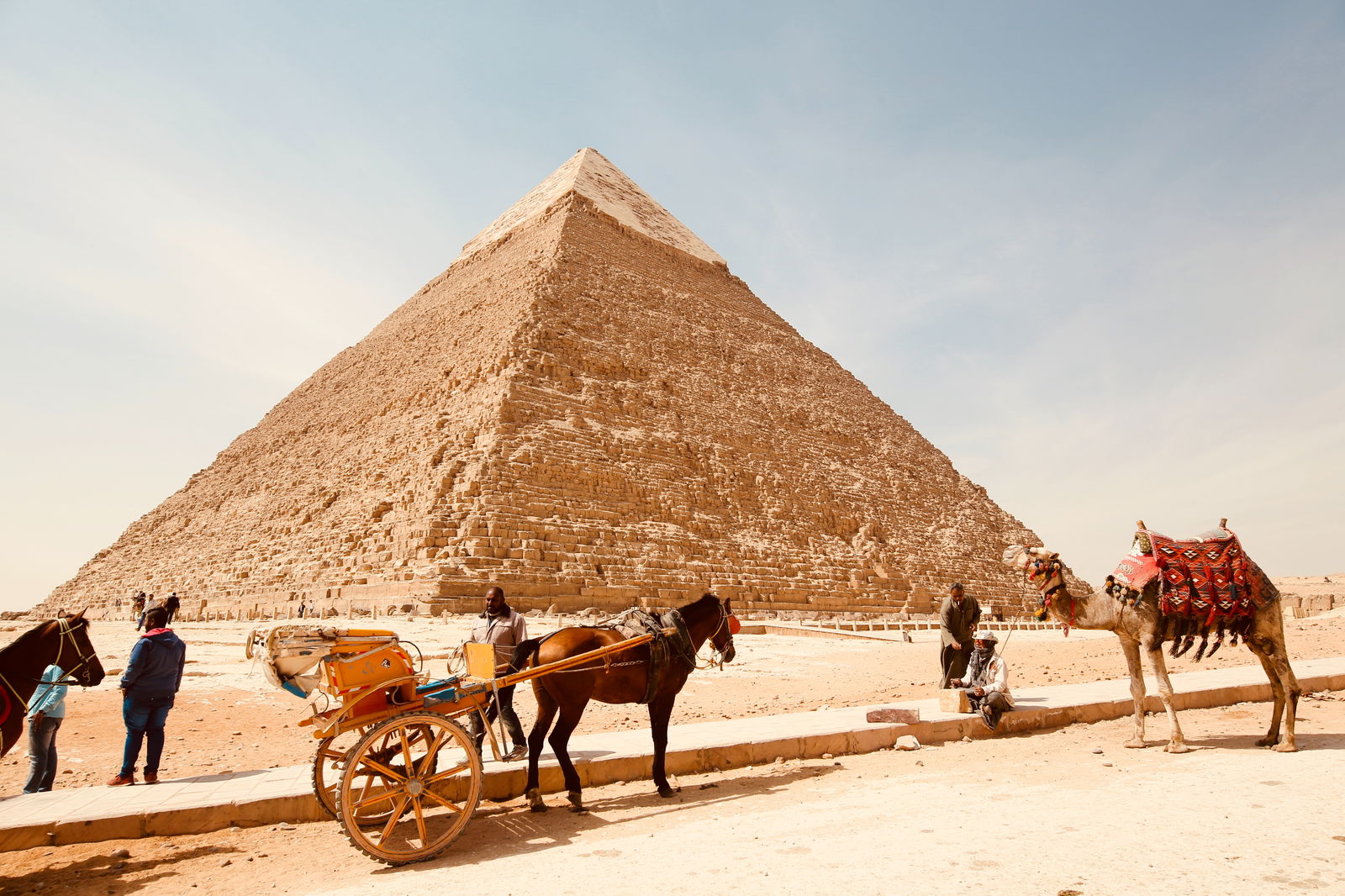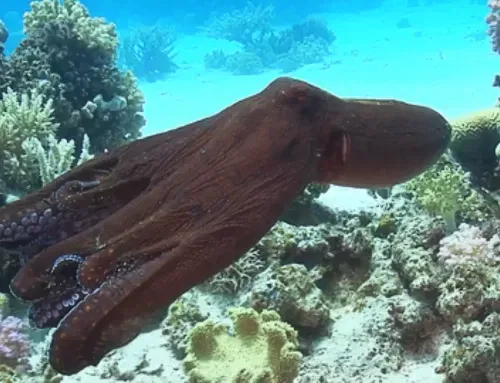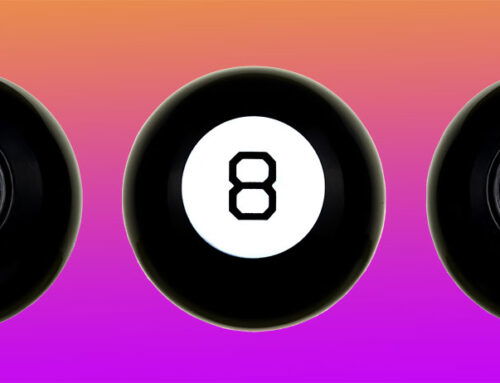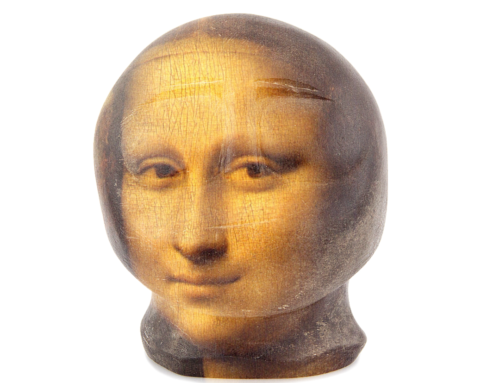
Photo courtesy of Fynn Schmidt, Unsplash
In the short story, Another, by Dave Eggers, the narrator is in Cairo against the advice of his government to deliver a package, which he successfully does in the opening sentence. We know nothing about who he works for or what’s in the package. That’s irrelevant. More to the point of the story, the narrator, now having some free time, goes sight-seeing. He rents a horse from an Egyptian guide, who takes him to visit the Red Pyramid, which requires a desert ride of some distance. The guide whips both his horse and the narrator’s and they gallop off into the desert. The problem is that the narrator has never ridden a horse before, except for a slow walk once as a tourist, and he is scared to death. He miraculously manages to stay on the galloping horse by struggling to position himself as high above the saddle as possible.
Performing this acrobatic stunt, he constantly moves against the natural motions of the horse and gets his butt slammed painfully against the saddle repeatedly. To make matters worse, the narrator is unimpressed by the Red Pyramids when he gets there. Yet, he agrees reluctantly to go see Bent Pyramid, requiring more horseback riding. Bent Pyramid is no more inspiring than Red Pyramid. But that too is irrelevant. What matters is that the narrator has learned to move in synchrony with the galloping horse and can now keep up with the guide without pain or difficulty (clearly a fast learner!). So, he agrees to visit still another pyramid, which requires more riding, but this time he enthusiastically tells his guide, “I want to go,” he wants to see another, as the story is entitled.
While reading this story, my mind flashed back to my own experiences when I chose to do things for the first time without any training or knowledge of what I was undertaking. The first time was a charm. I was about four years old in Elizabethtown, a small hamlet in the Adirondacks in upstate New York. I wanted desperately to know how to swim, but alas, didn’t know how. I cracked a wishbone with my mother, wished that I knew how to swim, won the bigger half, and behold, the next day I jumped into the chilly Bouquet River and swam! It had nothing to do with receiving lessons, which I never had. It was all in my mind. Wanting became knowing. Amazing.
The next time I remembered was less successful and, I admit, quite crazy. I had joined the track team when I was a freshman in high school. It was a small high school and consequently, not very many kids were on the team. There was a big interscholastic competition coming up and the team needed a high jumper to compete in my age category. I had never high jumped before, not even once, but how difficult could that be, I said to myself. Without hesitation I volunteered. At that point I think the coach had second thoughts because he said, “Thanks, Joram. But we don’t have the equipment for you to practice.”
“No problem,” I said. “I’ll just do the best I can at the meet.”
Imagine, the coach agreed! The meet was at an impressively large stadium, many schools were participating, and the bleachers were filled with parents and friends. The atmosphere was overwhelming and scary. I was given a number to pin on my shirt. Having no idea how to high jump, I studied the kids before me carefully to see how they did it. There were two techniques. The first was a type of scissor jump, feet first. The second was called a “western roll” if I remember correctly. That was head first, roll the shoulders around the bar and land on your back. Very cool, as they say. When my turn came, I remember as clearly as if it were yesterday running towards the bar, undecided which technique to use, asking myself, “Head first? Feet first? Head first? Feet first?” Suddenly the bar was directly in front of me and so…I jumped. Head first! It was a thing of unpracticed beauty, except that my feet didn’t clear the bar, so when I landed on my back, the bar came crashing down on my nose. Whack! Broken nose. End of my high jumping career. Well, you can’t win them all.
However, you can win some. When I was in my mid-30s on vacation with my family at White Grass Ranch in Wyoming, I volunteered to go round-up horses in the mountains at 5 in the morning with the cowboy staff. I did have some riding experience, but not much, certainly nothing like that. However, it sounded so romantic somehow, and exciting to become someone else for a few hours – a cowboy, a rancher – a figure of my imagination.
Everything went fine for a while – more than fine. I was galloping in the hills and pastures at sunrise, copying everything I saw the cowboys do, yet holding on to the horn of the saddle for dear life, and struggled not to be thrown on the ground as the horse shied one way and then another. Then the cowboys, the real ones, started yelling at me, “Don’t split the herd! Cut around to the left, etc. etc.” I did the best I could, although I didn’t know what I was doing or exactly what they wanted me to do. Split the herd? Was I doing that? I certainly didn’t want to split the herd! Luckily, all went well. I didn’t fall off the horse. Apparently, I didn’t split the herd, at least not too badly. I returned to our cabin at about 6:30 to find my family still in bed. And, I had an experience I’ll never forget. A cowboy on the range, herding horses, galloping at sunrise – not as a tourist, but a man on a job, not just an experience, but a glimpse of being a different person. Wow! I’m glad I did it.
I have also had other instances of doing other things without proper preparation – dangerous things in retrospect – without training of any type (i.e., snorkeling in the Great Barrier Reef, scuba diving in Hawaii on a rough day with my son no more than 9 or 10 years old) – but enough said.
My foolish choices are not the point. The narrator of Egger’s story galloped into the Sahara Desert without knowing how to ride, which opened a new world to him. I tried to high jump unsuccessfully, but felt the difficulty of accomplishment, the effort it takes to even try. I gave voice to a ghost of another person within me in Wyoming.
There’s no moral here, no advice, no confession, nothing important. It’s just what I did now and then, how I preferred to say “Yes” than “No,” perhaps too often, but I don’t regret any of the instances. I’ve only regretted what I didn’t do, never what I did. Our life is our choices, both large and small, sometimes even as insignificant as what we eat for dinner – what we know we like, or something new, something we’ve never even thought of eating, such as raw liver, heart and kidney of seals – all of which I tasted in the Arctic. They were disgusting, but I’m glad I tasted them; at least now I know not to do it again.
I guess I was lucky.






Leave A Comment